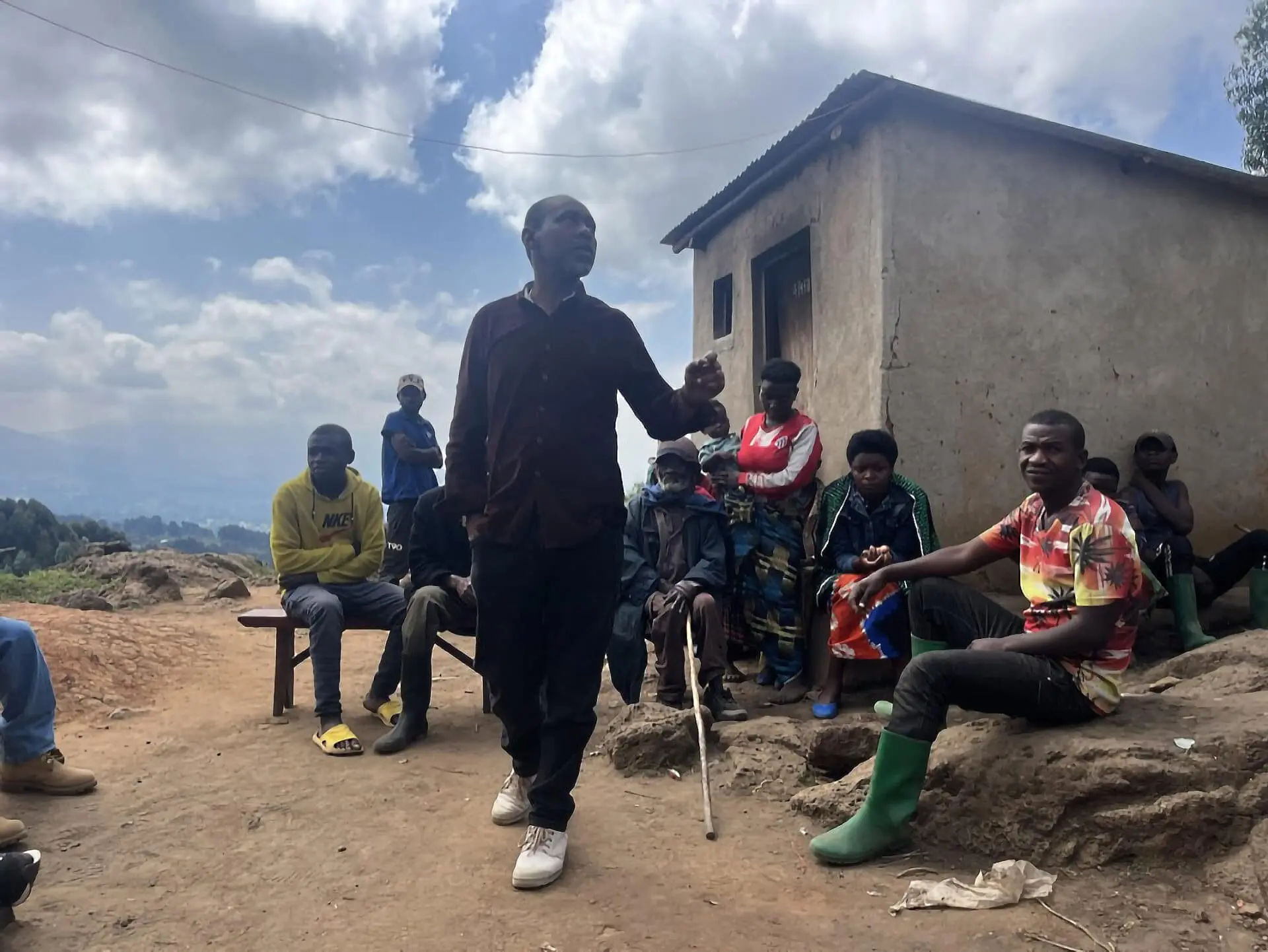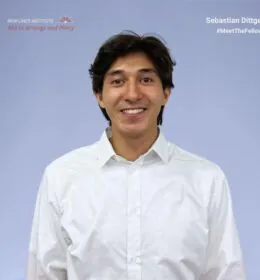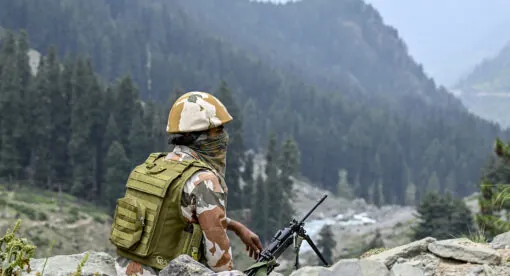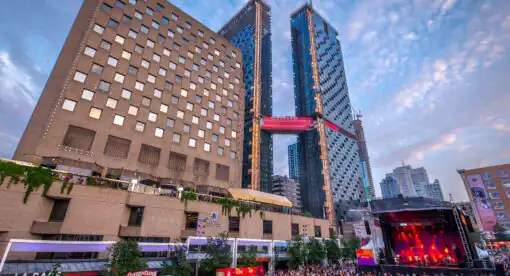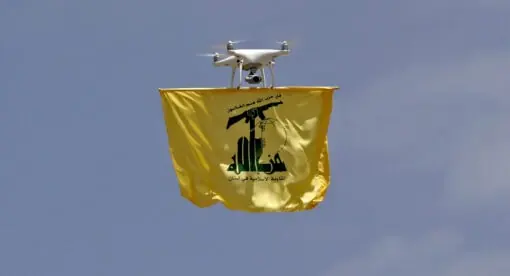The Batwa, often referred to in external discourse as “pygmies,” are among the oldest surviving indigenous communities in sub-Saharan Africa. Today, they face an existential crisis. Exclusion from environmental conservation and governance efforts, poverty, and continued violent spillover from conflict zones have led to mass displacement, killings, and the loss of Batwa traditions. This treatment contributes to regional instability, which deters investment and undermines U.S. strategic objectives. Without urgent recognition and protection, the Batwa risk disappearing, both culturally and as a distinct people. Addressing this crisis requires urgent and coordinated action from both the United Nations and state actors to protect Batwa rights through identity recognition and integration into policies that link conservation, development, and security.
The Batwa are traditionally forest dwellers, present across central and southern African forests; this analysis focuses on Batwa communities in Rwanda, Uganda, and the Democratic Republic of the Congo (DRC). These communities have long sustained themselves through hunting and gathering, pottery-making, and deep ecological knowledge as focal points of their culture. As a result, the Batwa’s cultural identity is inseparable from the forest ecosystems they have inhabited for centuries.
This analysis draws on field research and interviews with two leading advocates working directly with affected communities: Emmanuel Bugingo, founder of a Batwa community development organization in Rwanda, and Olivier Ndoole, a Congolese lawyer focused on community land rights. Their testimonies illustrate that the ongoing erasure of Batwa identity—through legal exclusion, cultural displacement, and conflict-driven exploitation—has become a human rights emergency and a barrier to lasting stability in Africa’s Great Lakes region.
Several decades ago, Batwa communities numbered in the millions across Rwanda, Uganda, and the DRC. Today, only fragmented communities remain, though no precise figures exist. Bugingo, the Rwandan Batwa community advocate, notes that indigenous mountain gorillas living in the same forests are carefully monitored as a part of international conservation efforts. In stark contrast, the Batwa communities who dwell in the same forests remain notably absent from official censuses and protection policies. This omission excludes them from human rights policymaking and accelerates their decline.
Batwa exclusion is a human rights crisis. Their invisibility in law and policy denies them access to citizenship rights, public services, and legal protection, leaving communities vulnerable to displacement, coercion, and abuse. Many Batwa live in the heart of conflict zones in eastern DRC, where they are often caught between armed groups and government forces, subjected to killings, forced recruitment, and sexual violence with little recourse to justice or protection. Without legal recognition, these abuses go unrecorded and unpunished.
Across the region, policies that criminalized traditional hunting expelled Batwa from ancestral forests and their identity have deepened their marginalization and prolonged cycles of neglect and violence. In Rwanda, the term “Batwa” was banned and replaced with the broad category of “Historically Marginalized People” under the National Unity Policy. This policy has obscured the Batwa’s distinct identity and needs by grouping them with other marginalized communities facing unrelated challenges, preventing tailored policy responses, erasing cultural specificity, and reinforcing social invisibility.
This systemic exclusion also undermines the DRC’s broader stability. Persistent human rights violations deter domestic and foreign investment, limiting infrastructure development and perpetuating economic fragility. In turn, poor infrastructure and weak institutions sustain insecurity, making communities more vulnerable to exploitation and displacement. Protecting vulnerable groups like the Batwa therefore strengthens governance and creates the foundations for stability, sustainable development, and long-term peace in the Great Lakes region.
The United Nations has a central responsibility to address this crisis. Recognition of Batwa identity, the inclusion of their voices in creating solutions, and the collection of reliable demographic data are urgent priorities that must be advanced through U.N. mechanisms, particularly in the upcoming review of the mandate of the U.N. Organization Stabilization Mission in the Democratic Republic of the Congo (MONUSCO) in December. The protection of Batwa communities should be made explicit in that mandate. Beyond MONUSCO, the U.N. Development Program (UNDP), the U.N. Environment Program (UNEP), and the Office of the U.N. High Commissioner for Human Rights (OHCHR) have important roles to play in supporting census work, safeguarding cultural rights, and ensuring environmental and human rights integration.
At the same time, meaningful progress will also require action from governments in Rwanda, Uganda, and the DRC, as well as engagement from international partners.
Origins and Historical Marginalization of the Batwa
The Batwa are one of Central Africa’s oldest indigenous peoples. Archaeological and oral histories confirm their presence in the Congolese rainforest at least tens of thousands of years ago – some models even approach 100,000 years – as hunter-gatherers ancestral to today’s Batwa and related groups. For millennia, Batwa communities lived in symbiosis with central and southern African rainforests, relying on them for sustenance, medicine, and spiritual grounding. Their knowledge of forest ecology, wildlife behavior, and seasonal rhythms allowed them to maintain a balance between human needs and environmental preservation.
Over the past century, colonial and postcolonial governance systems redefined the Batwa’s relationship with their environment. Conservation policies in the DRC, Rwanda, and Uganda, beginning in the 1930s and intensifying in the 1970s, declared forests as national parks. These policies criminalized traditional hunting and led to the eviction of Batwa communities from their ancestral lands. In Uganda, displaced Batwa families were given small plots of land and seeds to begin subsistence farming. These measures proved ineffective – there was too little land to sustain their populations, and few Batwa had the agricultural knowledge to adapt successfully after generations of forest-based living. As Bugingo has described: “You take someone who has never farmed, give them land and seeds, and they still go hungry. Hunting was their life, just as farming is for others.”
These policies illustrate a broader tension between law and livelihood: Legal frameworks designed to protect biodiversity have, in practice, excluded those best equipped to sustain it. Ndoole, the Congolese land-rights lawyer, emphasized that legal empowerment and access to information must also be considered part of development: “You cannot claim to support biodiversity if you do not support the people fighting to protect it.”
Over time, this forced detachment from the forest not only displaced Batwa communities physically but also distorted how they were perceived socially and legally. Across the region, Batwa came to be unfairly associated with illegal hunting and regional violence by neighboring communities and local law enforcement. Yet Batwa hunting has historically been subsistence-based, similar to farming or pastoralism among other groups. It was only when outsiders entered forests for profit-driven poaching that hunting became associated with criminal activity. By continuing to label Batwa as “poachers,” governments perpetuate collective punishment and prevent lawful cultural practices. As Ndoole has argued, genuine conservation cannot succeed without protecting the rights of the people who have always lived within these ecosystems.
In Rwanda, the establishment of the Office of National Parks in 1974 formalized the exclusion of Batwa communities from their ancestral lands. Those who returned to the forests for subsistence were labeled as poachers and were often imprisoned without trial. This framing severely misrepresented the Batwa’s identity as protectors of the environment, whose traditional knowledge had long sustained the ecological balance of these forests.
Similar policies are in effect in Uganda. While the Batwa are permitted limited ritual access to forest corridors around Bwindi Impenetrable National Park, their loss of land has been extensive. The 1991 ban on subsistence hunting and gathering within national parks, combined with minimal relocation and rehabilitation support, has left Batwa communities marginalized and economically vulnerable.
Although accurate data on Batwa populations is unavailable, estimates suggest their numbers have fallen from several million historically to hundreds of thousands today. Without measurement, their decline cannot be tracked, and without recognition, no targeted interventions can be designed. A 2022 Congolese law on the Promotion and Protection of the Rights of the Indigenous Pygmy Peoples exists but is scarcely enforced, according to Ndoole. The DRC is estimated to be home to the largest Batwa population in the region, yet they lack political representation and have been subjected to repeated violence and displacement due to their proximity to ongoing conflicts.
Identity and Security
Recognition of Batwa identity is not only a cultural matter but also a security issue across the Great Lakes. When communities are rendered invisible or criminalized, they become more vulnerable to displacement, exploitation, and cycles of poverty that destabilize already fragile regions. Invisibility also fuels social stigma: Across eastern Congo, Rwanda, and Uganda, Batwa are often perceived by neighboring communities as threats to crops or livestock – an attitude that reinforces exclusion, violence, and barriers to education and employment. Bugingo noted that this stigma permeates social relations too: In surrounding communities, eating with Batwa or even using the same utensils is often considered taboo, further deepening their isolation. Protection of this group is therefore integral to the stabilization and long-term peace of the region.
As Ndoole observed, the absence of recognition leaves Batwa without the legal protections that might shield them when conflict actors seize land or natural resources. This lack of status not only enables abuse but also erases any legal recourse when violations occur. Bugingo emphasized that stigma erodes ambition and self-belief, leaving many Batwa internalizing the idea that aspirations such as education or professional advancement “are not for them.” Without recognition, Batwa remain on the margins. Vulnerable to violence and unable to assert their rights as citizens, they have become trapped in a cycle of dispossession and invisibility.
These patterns of exclusion have repeatedly placed Batwa in the crossfire of Congo’s armed conflicts. In the early 2000s, the Congolese militia Movement for the Liberation of Congo launched the campaign effacer le tableau (“erase the board”) in Ituri province, ostensibly as part of a territorial conquest operation, in which Batwa and Bambuti Pygmies were massacred by the thousands in a yearlong extermination campaign. A 2021 attack by the ISIS-linked militia group Allied Democratic Forces (ADF/IS-CAP) left 46 Batwa dead. Batwa in Katanga province have been summarily executed and subjected to forced labor and slavery by the local Luba people, according to Human Rights Watch.
In North Kivu and Ituri, Batwa villages are frequently caught in fighting among multiple armed factions, even though Batwa communities rarely align with any side. Groups such as M23, ADF/IS-CAP, and local militias like CODECO and Mai-Mai factions operate in forested border areas, frequently laying claim to land and resources and, consequently, further marginalizing Batwa in the area. In early 2025, clashes between Congolese government forces and M23 escalated in North Kivu, contributing to widespread displacement of civilians, including Batwa. Similarly, the ADF, originally based in North Kivu, has expanded operations into Ituri, and in 2024 carried out attacks in forested zones there. Meanwhile, in Ituri, militias such as CODECO also engage civilians during violent attacks over resources and territory.
These conflicts impose a cascade of harms on Batwa communities. When violence erupts, Batwa are often forced to flee their ancestral lands, losing access to forest resources, sacred sites, and traditional hunting and gathering pathways. Displacement disrupts their ability to practice rituals, transmit oral histories, and maintain social cohesion. Some are pulled unwillingly into recruitment or coerced alliances with local militias, while others become victims of violence or extortion. Moreover, armed groups’ assertions of control over territory reinforce the logic that control of land equates to power: Whether under government law or insurgent command, whoever dominates the forests dictates who may live, move, or farm there. In this sense, Batwa communities not only face exclusion from formal governance but also become collateral in the battles of those asserting de facto authority over their lands.
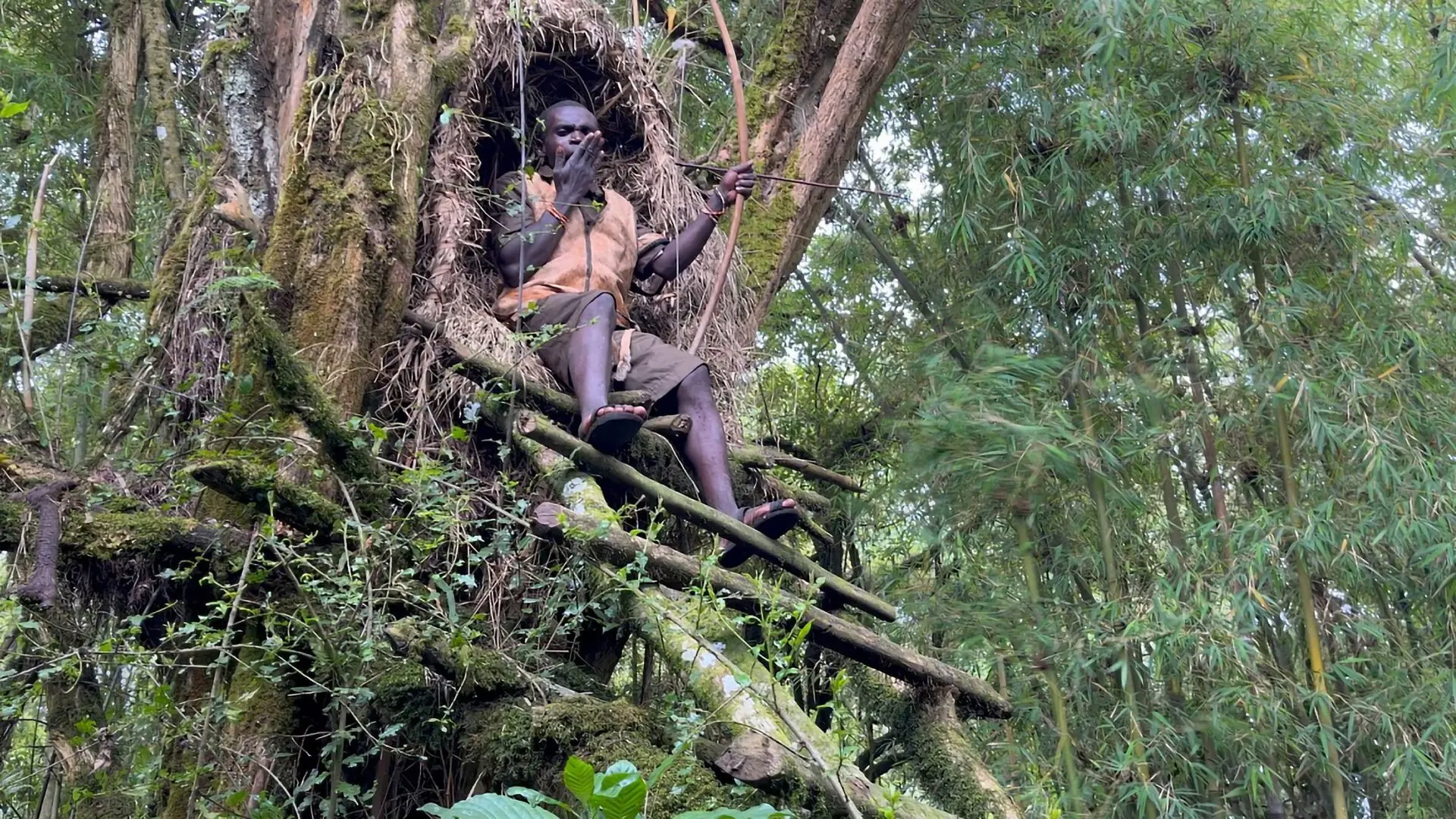
Holistic Approaches to Livelihoods and Development
Batwa communities span Rwanda, Uganda, Burundi, and the DRC, yet the policies set by each government toward them differ dramatically. Harmonized recognition of Batwa identity across all states in the region, combined with guaranteed cultural corridors, would reduce border friction, strengthen conservation, and cut into illicit economies that thrive in governance gaps. Exclusion from census data prevents Batwa and other marginalized groups from accessing government benefits such as health care, education, and social protection and ultimately denies them legitimacy as members of the state, leading to their erasure. For Ndoole, the lack of reliable information also undermines legal advocacy – without demographic recognition, courts and state institutions more easily dismiss claims of discrimination. Establishing censuses or surveys that disaggregate Batwa populations is therefore not a technical exercise but a necessary condition for rights protection and both the creation and implementation of adequate policy measures.
Single-sector interventions are ineffective. Job training programs such as sewing and welding initiatives provide useful skills but do little to tackle the systemic exclusion and marginalization created by the failure to recognize Batwa identity.
Instead, a holistic approach must be adopted. Bugingo argues for measures that combine healthcare, education, conservation, and livelihood support. These integrated approaches must address the root causes of Batwa marginalization by tackling both structural exclusion and the daily barriers that prevent full participation in society.
Ndoole emphasized that legal empowerment and access to information must also be considered part of development. Batwa are often excluded from health insurance and unfamiliar with modern health systems, relying instead on traditional healing practices that cannot always meet their medical needs, resulting in poorer health outcomes and higher mortality. Education gaps are severe, with many Batwa entering adulthood without literacy or marketable skills, leaving them unable to compete for formal employment or advocate for their rights. Without addressing these barriers alongside cultural recognition, intervention risks reinforcing, rather than alleviating, marginalization.
Mutual conservation efforts offer opportunities for collaboration with Batwa communities. The Batwa’s traditional livelihood as custodians of the forest means they continue to see themselves as part of its ecosystem. In recent years, some Batwa have been employed in conservation and anti-poaching programs around national parks, where their ecological knowledge is recognized as an asset. These initiatives provide livelihoods while demonstrating the Batwa’s commitment to biodiversity protection. Yet only a very small share of the community has benefited, while the majority remain excluded, displaced from ancestral lands, and unable to practice their traditional ways of life. Expanding conservation partnerships to include Batwa at scale is therefore not just about livelihoods but also about correcting exclusionary models that displaced them in the first place.
Sustainable progress will also depend on leveraging the network of civil society organizations working across Rwanda, Uganda, and the DRC. Many of these groups are Batwa-led or work closely with Batwa communities, coordinating across borders in ways that state and international actors have struggled with. Their deep local trust, cultural fluency, and ability to mobilize communities make them crucial partners for lasting change.
However, their capacity remains constrained by limited funding, weak institutional links to policymakers, and threats from armed actors and those engaged in illicit resource extraction. Strengthening and resourcing these cross-border networks offers a realistic and community-driven path for advancing inclusive development, conservation, and stability in the Great Lakes region.
Policy Recommendations
Addressing the marginalization of Batwa communities requires coordinated action across multiple levels of governance. Recommendations are therefore directed to national governments (Rwanda, Uganda, DRC), the United Nations and MONUSCO, and the United States and its international partners. Across all actors, the guiding principle must be to integrate Batwa identity, rights, and knowledge into decision-making processes, ensuring that security, development, and conservation efforts are both sustainable and inclusive.
For the United Nations and MONUSCO
- Peacekeeping and Protection: As MONUSCO approaches the expiration of its mandate, its renewal remains critical to the stability of the DRC and the protection of vulnerable populations. The renewed mandate should explicitly prioritize the protection of Batwa communities, recognizing them as a particularly at-risk group within conflict-affected areas. Engagement with conflict parties, including state forces and armed groups, should include provisions to prevent displacement, forced recruitment, and indiscriminate violence against Batwa villages.
Incorporating language on indigenous and minority community protection into the renewed mandate does not expand MONUSCO’s scope; rather, it reinforces the mission’s core civilian-protection and human-rights responsibilities under existing Security Council authorizations. Strengthening these provisions would allow MONUSCO to address the specific vulnerabilities of marginalized groups such as the Batwa while remaining consistent with its current priorities of civilian protection, support to state authority, and stabilization of eastern Congo. The mission should also establish measurable indicators, such as tracking conflict-related displacement of Batwa populations, to ensure accountability and targeted impact within its protection-of-civilians framework.
- Technical and Financial Support: The U.N. should support national governments in conducting Batwa-specific censuses and socio-economic surveys. This could be led by UNDP in coordination with national statistics offices, with the UNFPA spearheading technical expertise on demographic methodologies. To facilitate this, OHCHR must ensure the process safeguards minority rights, while UNESCO should contribute to cultural recognition of Batwa heritage, languages, and traditional ecological knowledge. Dedicated funding for these surveys should be mobilized through multilateral partners, potentially under the framework of Sustainable Development Goals 10 and 16.
- Human Rights Integration: U.N. agencies should mainstream Batwa rights into broader human rights, humanitarian, and development programming. OHCHR can provide technical guidance on indigenous rights in line with the U.N. Declaration on the Rights of Indigenous Peoples (UNDRIP). UNHCR and OCHA should ensure that Batwa are explicitly included in protection clusters, humanitarian assistance, and displacement monitoring systems. This would prevent Batwa from being “invisible” within programs directed at more broadly defined “marginalized populations.”
- Cross-Border Collaboration: The U.N. should facilitate harmonized recognition and protection frameworks across Rwanda, Uganda, and the DRC. This could include UNESCO-led initiatives for safeguarding Batwa cultural corridors, UNEP and Food and Agriculture Organization support for community-based conservation partnerships, and agreements brokered by MONUSCO’s regional offices to reduce friction at borders. Provisions should be built into MONUSCO’s mandate renewal to strengthen transboundary cooperation on biodiversity protection and indigenous community rights. In parallel, the U.N. should also ensure that both Batwa-led and non-Batwa-led organizations working to advance Batwa rights are represented in global forums – particularly through inclusion in the U.N. Forum on Minority Issues and related platforms – to ensure their perspectives inform regional and international policy.
For the United States and International Partners
- Diplomatic Leverage: The United States should elevate Batwa protection in its diplomatic engagements with Kinshasa and Kigali. Their vulnerability to displacement, forced recruitment, and collective punishment contributes directly to regional fragility, which deters investment and undermines U.S. strategic objectives. Trade, development, and security cooperation should be tied to concrete benchmarks on Batwa identity recognition, legal safeguards against discrimination, and inclusion in development frameworks. In the context of great-power competition, stability in the eastern DRC is not only a humanitarian concern but a strategic one: Insecurity and mass displacement prevent sustainable investment and open space for rival powers to expand influence through resource extraction and infrastructure projects. Protecting marginalized groups such as the Batwa is therefore foundational to long-term U.S. engagement, creating the conditions for reliable partnerships, transparent governance, and future economic cooperation.
- Stabilization and Atrocity Prevention: U.S. stabilization and atrocity prevention strategies in the Great Lakes region should explicitly include Batwa communities. Supporting community protection aligns with long-standing U.S. commitments under the Elie Wiesel Genocide and Atrocities Prevention Act and complements broader counter-extremism and stabilization goals. By embedding Batwa protection into regional peacebuilding frameworks, the U.S. can help reduce armed group influence, mitigate refugee flows, and foster the predictability necessary for private-sector engagement and sustainable development.
- Support for Cultural Access and Conservation: Congress should encourage U.S. contributions to multilateral initiatives that fund pilot projects that pair ecological monitoring with regulated Batwa cultural access to forests. These projects, implemented in partnership with conservation organizations, should be evaluated against both biodiversity and community well-being indicators to demonstrate how indigenous cultural practices can reinforce, rather than undermine, conservation goals. Such programs present cost-effective, evidence-based pathways for stability that advance both humanitarian and environmental objectives while limiting the need for deeper U.S. security expenditures in the region.
- Capacity-Building for Civil Society: International partners should prioritize direct support for civil society organizations that are Batwa-led or trusted by Batwa communities. These cross-border networks already operate across Rwanda, Uganda, and the DRC, bridging gaps that international actors have struggled to close. Strengthening their capacity not only improves human rights protections but also builds community resilience against recruitment by armed groups, thereby reinforcing local governance and regional stability. For Congress, funding can be adapted to channel resources toward these organizations. Empowering locally rooted civil society is among the most cost-efficient ways to achieve both security and development outcomes in fragile environments.
For the Governments of Rwanda, Uganda, and the DRC
- Identity Recognition: Rwanda should revise its classification of “Historically Marginalized People” to distinguish the Batwa as a specific group with unique cultural and livelihood needs. Uganda and the DRC should maintain open recognition of Batwa identity and ensure legal protections that prevent discrimination.
- Census and Data Collection: All three governments, in collaboration with international partners, should conduct censuses and statistical surveys of Batwa populations. Reliable demographic and socio-economic data is essential to direct resources, measure progress, and legitimize Batwa communities in national policy frameworks.
- Land and Cultural Access: Governments should create legal pathways for regulated Batwa access to traditional hunting grounds and forest corridors for cultural and subsistence practices. These policies should balance biodiversity protection with food security and cultural continuity.
Integration in Conservation: National conservation agencies should formally include Batwa as co-stewards of protected areas, drawing on their ecological knowledge and historical role as guardians of the forest. This requires scaling up community-based conservation models and phasing out exclusionary approaches that treat Batwa as threats.
The views expressed in this article are those of the author and not an official policy or position of New Lines Institute.

